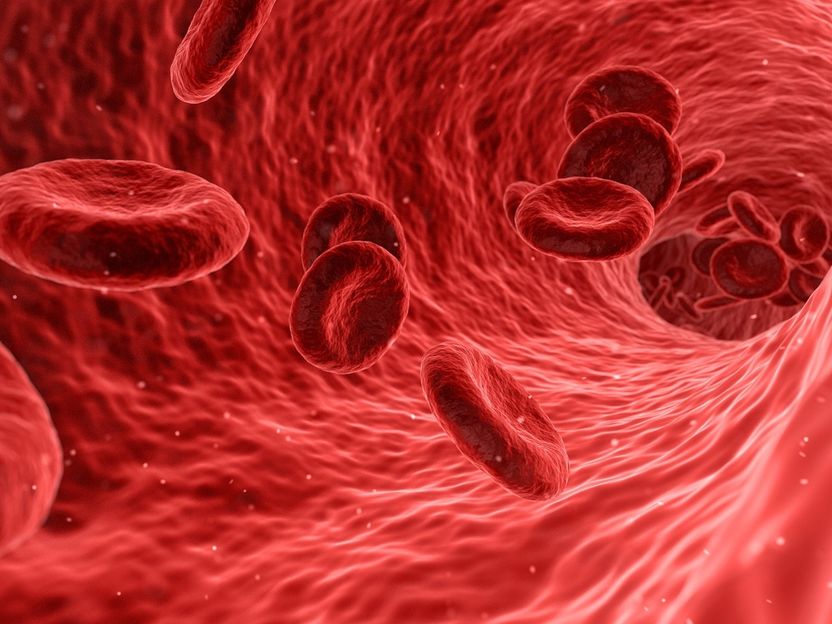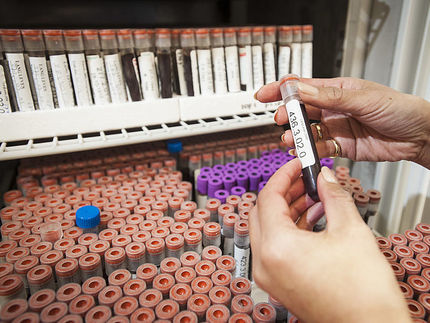Blood proteins could be the key to a long and healthy life
Two blood proteins have been shown by scientists to influence how long and healthy a life we live
Developing drugs that target these proteins could be one way of slowing the ageing process, according to the largest genetic study of ageing.

Symbolic image
pixabay.com
As we age, our bodies begin to decline after we reach adulthood, which results in age-related diseases and death. This latest research investigates which proteins could influence the ageing process.
Many complex and related factors determine the rate at which we age and die, and these include genetics, lifestyle, environment and chance. The study sheds light on the part proteins play in this process.
Some people naturally have higher or lower levels of certain proteins because of the DNA they inherit from their parents. These protein levels can, in turn, affect a person’s health.
University of Edinburgh researchers combined the results of six large genetic studies into human ageing – each containing genetic information on hundreds of thousands of people,
Among 857 proteins studied, researchers identified two that had significant negative effects across various ageing measures.
People who inherited DNA that causes raised levels of these proteins were frailer, had poorer self-rated health and were less likely to live an exceptionally long life than those who did not. .
The first protein, called apolipoprotein(a) (LPA), is made in the liver and thought to play a role in clotting. High levels of LPA can increase the risk of atherosclerosis – a condition in which arteries become clogged with fatty substances. Heart disease and stroke is a possible outcome.
The second protein, vascular cell adhesion molecule 1 (VCAM1), is primarily found on the surfaces of endothelial cells – a single-cell layer that lines blood vessels. The protein controls vessels’ expansion and retraction – and function in blood clotting and the immune response.
Levels of VCAM1 increase when the body sends signals to indicate it has detected an infection, VCAM1 then allows immune cells to cross the endothelial layer, as seen for people who have naturally low levels of these proteins.
The researchers say that drugs used to treat diseases by reducing levels of LPA and VCAM1 could have the added benefit of improving quality and length of life.
One such example is a clinical trial that is testing a drug to lower LPA as a way of reducing the risk of heart disease.
There are currently no clinical trials involving VCAM1, but studies in mice have shown how antibodies lowering this protein’s level improved cognition during old age.
Dr Paul Timmers, lead researcher at the MRC Human Genetics Unit at University of Edinburgh, said: “The identification of these two key proteins could help extend the healthy years of life. Drugs that lower these protein levels in our blood could allow the average person to live as healthy and as long as individuals who have won the genetic lottery and are born with genetically low LPA and VCAM1 levels.”
Professor Jim Wilson, Chair of Human Genetics at the University of Edinburgh’s Usher Institute, said: “This study showcases the power of modern genetics to identify two potential targets for future drugs to extend lifespan.”
Original publication
Other news from the department science
These products might interest you

Kjel- / Dist Line by Büchi
Kjel- and Dist Line - steam distillation and Kjeldahl applications
Maximum accuracy and performance for your steam distillation and Kjeldahl applications

AZURA Purifier + LH 2.1 by KNAUER
Preparative Liquid Chromatography - New platform for more throughput
Save time and improve reproducibility during purification

Get the analytics and lab tech industry in your inbox
By submitting this form you agree that LUMITOS AG will send you the newsletter(s) selected above by email. Your data will not be passed on to third parties. Your data will be stored and processed in accordance with our data protection regulations. LUMITOS may contact you by email for the purpose of advertising or market and opinion surveys. You can revoke your consent at any time without giving reasons to LUMITOS AG, Ernst-Augustin-Str. 2, 12489 Berlin, Germany or by e-mail at revoke@lumitos.com with effect for the future. In addition, each email contains a link to unsubscribe from the corresponding newsletter.
























































